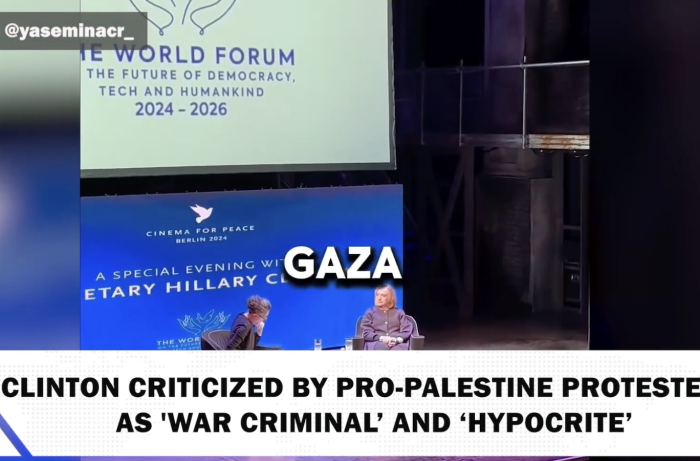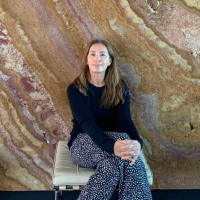{*Did you know you can write on Elephant? Here’s how—big changes: How to Write & Make Money or at least Be of Benefit on Elephant. ~ Waylon}
~
“You should be ashamed of yourself! You are not woman; you are not human!”
These are the words an angry protestor screamed while interrupting Hillary Clinton as she tried to speak about human rights in Berlin last week.
While I understand and sympathize with the sentiments of pro-Palestinian protestors, I feel that to tell another human “you are not human” perpetuates the same violence we are trying to address.
Dehumanization of any side is just two sides of the same coin.
When I left a comment on the Instagram post documenting the event, some women argued: “Is she human? Does she have a heart?” And, “She’s not human! That’s why. She shapeshifts.” And, “No, she’s a politician remember.”
It’s too easy to say that someone else is the villain, that violence is perpetrated by others, by those who are somehow less than human, by someone “not like me.”
This is exactly what the Israeli government continues to say about Palestinians: they are not humans, which makes it easier for them to continue an offensive that by the latest count has exterminated close to 30,000 people, mostly women and children, while wounding over 70,000 others.
When we feed into the collective mythology that violence is perpetrated by “monsters,” by those who are somehow less than human, we reinforce our collective dissociation. This thinking only perpetuates the collective othering, and denies the reality that human beings have the capacity to do horrible things.
Violence is a part of our humanity, not outside of it. Violence happens daily in our families, in our homes, in our society.
And it starts with brutal violence within each one of us.
The inner dialogue I observe in my work with others—and my work started with catching it within me—is violent, self-hating, and intolerant. Our psyche is fractured from the legacy of violence and trauma that runs all throughout human history. But the pain of it is so overwhelming that we have carefully locked it in an inner dungeon we never dare to visit.
When we don’t face our inner pain, the violence of our inner perpetrator, we cannot feel it, cannot process and integrate it, cannot transform it.
We all keep things hidden from ourselves because we are terrified to face them: remorse and regret, horror and anguish. We deny the ways we have been hurt and the ways we have hurt others, we deny our human bodies and their aging and vulnerability, we deny our deepest desires, we deny ourselves things our society deems taboo as we get flooded with unbearable shame.
If we cannot face the shame of being who we are, then we cannot transform it, and we’ll continue perpetuating it—in our own being, with our loved ones, in society at large.
All wars begin within.
Calling other humans less-than-human illuminates our lack of self-awareness and self-acceptance, first of all.
The more we can un-shame our own humanness, our pains, our longings, our capacity for harming others and ourselves, the more we can recognize the pain and longing of others.
The change must occur within before we can ever change the external world.
I start by examining my own beliefs and conditioning programs, and sneaky layers of separation, fear, and division.
There’s nothing in the world that l’m not part of.
Facing this is what leads to change, to remorse, to grief, to responsibility, to action. To change.
Projecting our pain on others just perpetuates the status quo.
A lot of my work is founded on un-shaming humanness.
What the external world mirrors to us is a wake-up call to look at ourselves, to own our part in choosing ignorance and in deflecting responsibility.
When we look at our own darkness, and see it, and own it—we free ourselves to actually choose:
Who do I want to be?
How do I want to human?
Change begins with each one of us.
~
~
{Please consider Boosting our authors’ articles in their first week to help them win Elephant’s Ecosystem so they can get paid and write more.}
~

 Share on bsky
Share on bsky







Read 4 comments and reply